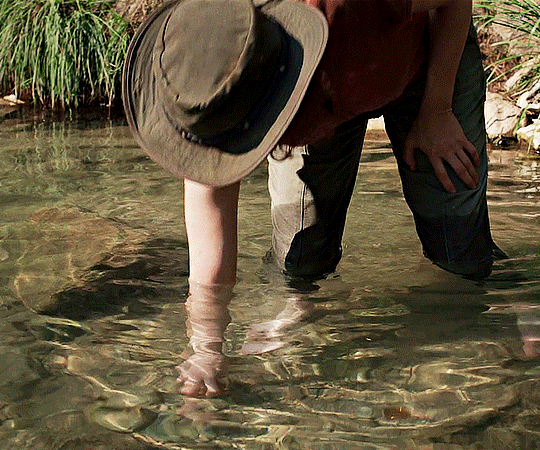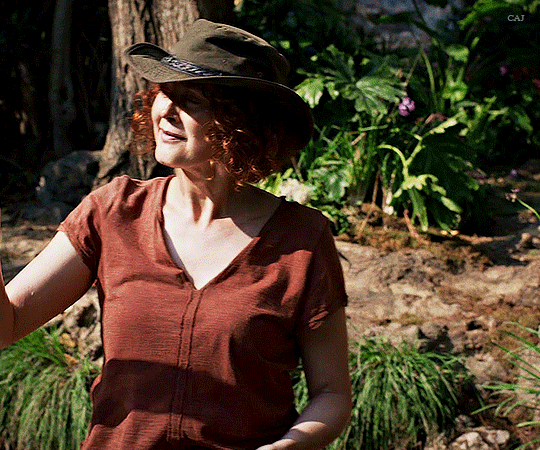#language learning material
Explore tagged Tumblr posts
Text
Language Learning Resource! (Video)
I feel like this video is a PERFECT outline of what you should be actively doing to learn another language.
—
youtube
—
Here’s the main takeaways with some of my own ideas thrown in:
1. Don’t learn a language with the intent to enjoy fun things in your target language LATER after you gotten to whatever your target level of fluency is: Just go ahead and start now! Watch the TV show you want to watch even if you don’t understand any of it yet, you’ll get there eventually.
2. You do not need to be speaking all the time with others to get good at speaking. It helps, but it should not be solely relied on. OP gives a good example of what he did wrong in the video.
3. Speaking a language isn’t due to knowledge like learning math is, it’s more like a muscle that is always working for the sake of function.
4. You can’t just do 30 minutes days and expect to be fluent eventually. You need to be using your target language as much as possible (aka immerse yourself). Immersion takes much more than 30 specific minutes out of your day. I actually do this all the time, talk to yourself in your target language, read your target language (I follow a lot of social media accounts in my target language so I constantly see it), text others in your target language, watch videos/movies, voice shadowing etc etc. You may even be able to feel when your brain is in (insert language here) mode. Me personally I can tell, and I notice that if I’m in Japanese mode it’s hard to absorb things in Mandarin or other language
5. Mindset is everything. If you think constantly about how hard something is, you will always feel like the task is hard. If you are learning a notoriously hard language, and ruminate about this, it will only hurt you in the long run. When I started learning Mandarin as a kid no one ever told me it was hard before, and I picked it up fast, and I only slowed down when I got frustrated about how hard the language is but sped back up when I reminded myself that input and immersion will get me the results I’m looking for eventually no matter which language.
—
#langblr#studyblr#language learning material#language learning resources#language lover#language learning#language study#language stuff#learning reference#learning resources#language lessons#language learning resource
45 notes
·
View notes
Text
occasionally i encounter posts about people using like. language learning apps and figuring out their reading level and it's like okay yeah that probably is easier than going on internet archive sorting by language picking an article and/or textbook that seems interesting and then pausing every two seconds to look up words but i've chosen the hard road and i'm sticking with it 👍
#language learning#langblr#is that a thing?#the actual reason i'm practicing my russian on random soviet-era articles is 1) the thing i need it for is soviet-era articles#and 2) even though it's a massive pain in the ass being interested in the reading material does actually make me practice consistently#the current one is from 1964 (final year of the khrushchev thaw) which is a little past when i study (stalinist period)#there's this kind of implicit what we had before wasn't *really* communism. now we're building communism#but without mentioning any of the before explicitly
189 notes
·
View notes
Text
The Golden Compass of Our Linguistic Intuitions
From hakoret-harishona . com
October 30, 2018

One of Philip Pullman's loveliest ideas in his book The Golden Compass (1995) is an instrument called "an alethiometer". The alethiometer resembles a golden clock or compass, but instead of the hours in the clock, there are 36 little pictures – an anchor, an hourglass, a beehive and so on – around its rim. The instrument has three hands that can be arranged to point at any of the pictures, and a fourth, longer hand that can swing freely. The image above is a photo of the alethiometer from the film version of The Golden Compass.
The book's protagonist, a girl called Lyra, receives such an instrument, and later on hears an explanation regarding the origin of its name. The word alethiometer is derived from aletheia (ἀλήθεια), "truth" in Ancient Greek; an alethiometer is thus a "truth-meter".
"All these pictures round the rim … they're symbols, and each one stands for a whole series of things. Take the anchor, there. The first meaning of that is hope, because hope holds you fast like an anchor so you don't give way. The second meaning is steadfastness. The third meaning is snag, or prevention. The fourth meaning is the sea. And so on, down to ten, twelve, maybe a never-ending series of meanings … I know some, but to read it fully I'd need the book. I seen the book and I know where it is, but I en't got it. … You got three hands you can control … and you use them to ask a question. By pointing to three symbols you can ask any question you can imagine, because you've got so many levels of each one. Once you got your question framed, the other needle swings round and points to more symbols that give you the answer.'
'But how does it know what level you're a-thinking of when you set the question?'
'Ah, by itself it don't. It only works if the questioner holds the levels in their mind.'"
Choosing a Meaning
As a rule, then, the readers of the alethiometer use books to look up the relevant meanings of the symbols. Lyra doesn't have the books, and in any case, she's an uneducated child. However, as she plays around with the alethiometer, she soon realizes that without any books, she can read it, ask questions and understand the answers. The longer she uses the alethiometer, the better she gets at it. When asked "how do you know where these meanings are?" she answers "I kind of see 'em. Or feel 'em rather, like climbing down a ladder at night, you put your foot down and there's another rung. Well, I put my mind down and there's another meaning, and I kind of sense what it is. Then I put 'em all together."
I recently read Pullman's new book, a prequel to The Golden Compass. And as I read it, I realized that the alethiometer can be seen as a metaphor to the process of speaking, comprehending and even acquiring language.
Words, like the symbols in the alethiometer, have many meanings, often related. Some of them have dozens of meanings – as we can see by considering a few examples, or looking them up in a good dictionary. When we speak (or write), we must choose words that have meanings suitable to what we wish to say; when we decipher what has been said to us (or what we read), we must understand, like the readers of the alethiometer, which of a word's meanings is now relevant. Does since mean "from that time on" or "because"? Does wave indicate the rising of water, the movement of a hand, an oscillating electric field, or something that football fans do at a stadium? The relevant meaning of a word, like the relevant meaning of one of the alethiometer's symbols, is chosen or made clear by the complete message.
The process of choosing the relevant meaning happens when we phrase a message – speak, or ask a question of the alethiometer – as well as when we decipher one. In the quotation below, Lyra explains how she's asking the alethiometer "what's Mrs. Coulter doing now" (Mrs. Coulter is Lyra's mother).
"Well, the Madonna is Mrs. Coulter, and I think my mother when I put the hand there; and the ant is busy – that's easy, that's the top meaning; and the hourglass has got time in its meanings, and partway down there's now, and I just fix my mind on it."
Similarly, when we speak, we choose words that express the message we wish to deliver, i.e. words that one of their meanings suits what we wish to say. In the sentence "I called her but the line was busy", for example, there are several words with multiple meanings; if I say this sentence, I must have chosen called because one of its meanings is "phoned", and busy because one of its meanings is "currently in use". Once the message is created, we hope the person who receives it will decipher it correctly – will recognize, from among the different meanings of each word (or combination of words), the meaning we are trying to convey; that they, as Lyra put it, put their foot down and find another rung, put their mind down and find another meaning, and then put 'em all together.
So far it makes sense. Pullman's alethiometer can be seen as a metaphor, beautifully and poetically made, for symbolic communication. In the terms used by the linguist Ferdinand de Saussure, every sign is composed of a signifier and a signified; the alethiometer's symbols, like words in a language, are signifiers, and each one of them can, and indeed does, stand for several signified objects. Identifying the right meaning, in human communication as well as in reading the alethiometer, is a task that requires thought and an act of choosing.
How Many Levels? Perhaps a Never-Ending Series: Meanings, Register, Connotation, Context

Using words, however, entails much more than choosing one of several possible meanings. Words have not only meanings, but also a register: the words child and kid have a common meaning, but one is much less formal than the other. Words have not only a denotation, a primary and literal meaning, but also a connotation – the cultural and emotional associations that they carry with them; thin and slender have a similar meaning, but thin is basically neutral whereas slender has a positive connotation. Some words are commonly used in certain contexts, which can be very specific. Ginger is used to indicate a reddish color, but only for hair or fur (we wouldn't usually say "a ginger sunset"). Blonde is used even more specifically – only for hair: we say "a ginger cat", but we don't normally say "a blonde cat".
All these characteristics of words and their usage – the different meanings, the register, the connotations and the typical context – are somewhat similar to the "levels of meaning" in Pullman's alethiometer. There is the “first level” mentioned by Lyra, the level of the most common meaning, which will probably be the first meaning we learn as we acquire the language; but every word has multiple layers. This is most easily felt when someone uses a word in an unusual context or manner, or misinterprets a word when it is used to indicate a less common meaning. These kinds of mistakes are typical of non-native speakers – people who learned this particular language as second or third language, but have a different language as their native tongue.
The Alethiometer as a Mother Tongue
We thus reach another layer in Pullman's lovely metaphor. Most of the alethiometer's readers are scholars, meaning – adults. To them, using the alethiometer is a skill that requires learning, from books or from another scholar, and they need a book detailing the meanings of the symbols in order to phrase questions and comprehend the answers they receive. The child Lyra, on the other hand, acquires the ability to communicate with the alethiometer without requiring a book or a teacher. She toys with the alethiometer, looks at the pictures, moves the hands and follows the movement of the needle, and soon intuitively comprehends the meanings of the symbols: "I kind of see 'em. Or feel 'em rather". Her communication with the alethiometer is so fast and intuitive that this ability becomes a huge asset to her side in the war described in the book: by the time the enemy's adult reader has asked a question and deciphered the answer, her side has gained precious hours.
Does this difference remind you of something? I was reminded of the difference between mother-tongue and second-language acquisition. Children acquire their mother tongue easily and naturally, with no need for formal teaching or a dictionary. All it takes is for people to use it in their presence (and later – to talk to them). Adults, as a rule, require formal teaching. Even then, and after many years of practice, the second language is still a second language, and its deeper levels might still be missing, resulting in misunderstandings or peculiar phrasings.
Towards the conclusion of His Dark Materials trilogy, of which The Golden Compass is the first volume, Lyra has grown from a child to a young woman, and is horrified to realize that she has lost her ability to read the alethiometer. How did this happen? An angel explains to her that her ability to read the alethiometer has been given to her "by grace", and is now gone. Pullman does not explicitly indicate Lyra's growing up as the reason for this loss of grace, the ability to read the alethiometer intuitively; but she's told she can re-learn it "by work" – patiently, formally, with the use of books, and she decides to do so.
All of us, like Lyra, enjoy a period of grace in our childhood. One in which we can acquire a language effortlessly, just by hearing it. All of us, like Lyra, lose this ability as we grow up. Yet like Lyra, we can still learn a new language, and delve deeper and deeper into it, with hard work, patience and books.
#language#linguistics#philip pullman#his dark materials#the golden compass#hdm#writing#alethiometer#first language#mother tongue#second language#symbols#meaning#truth#words#communication#childrens literature#booklr#books#ya literature#native speaker#the book of dust#lyra#lyra silvertongue#lyra belacqua#long post#interesting#language learning#study#literature
43 notes
·
View notes
Text
Unlocking Advanced Japanese Learning: My Go-To Resources and Techniques for Self-Learning
As a Japanese teacher and lifelong learner, my journey with the language never ceases. Progressing in Japanese as a self learner or adult learner requires not only dedication but also the right resources. While textbooks are invaluable for building foundational grammar and vocabulary, finding suitable materials becomes more challenging as you advance. However, this doesn’t mean opportunities are…

View On WordPress
#authentic Japanese materials#Japanese language learning#Japanese lessons#Japanese with Shun#Japaneselanguage#learn japanese#NHK News Web Easy#nihongo#日本語
40 notes
·
View notes
Text
I have another piece of translation trivia for you pathologic nutsos
In English, on the night of day 3, Artemy can mention to Lara that he "Served as a medic for a while", refering to his brief military service.
*extremely incorrect loud buzzer*
He doesn't say "medic", or even "combat medic" in Russian. He uses the word Фельдшер, or Feldsher, which is a very specific thing.
A Feldsher is (or rather was) a mid-level (that is, without university education) medical practitioner. They don't have the same authority as doctors, but can perform certain operations or diagnostics. Historically, it was a non-combative position in the Russian Army and fleet. They even made a labor union in 1905!
It gives historical context to the entire setting, because Feldshers are mostly assossiated with the late 19th to early 20th century - the term is anachronistic (I guess that's why it was omitted in English) Edit: The term is still generally used in Russia, as pointed out in the comments, though the current and historical meaning are slightly different. We still have some Feldshers in Poland, as the only country in the EU where that position is legally recognized.
It also makes so much sense, given Artemy's situation - he never finished university but did have some prior knowlegde, so it would be reasonable for him to serve, as it was a common practice back then.
#pathologic#pathologic 2#artemy burakh#мор утопия#evey day means more hatered towards the english translation of this game#but its also so fun to discover all that#by discover i mean doing the bare minimum of consuming art as it was intended by the creator#without filtering it through the lense of a different language#which creates a completely new and often wrong understanding of the source material#girls when they learn a new language just to experience art in its purest form
191 notes
·
View notes
Text








Simone Kirby as MARY MALONE HIS DARK MATERIALS 3.05 | No Way Out
#hdmedit#his dark materials#hdm#hisdarkmaterialsedit#the amber spyglass#mary malone#simone kirby#hdmsource#userzhr#userstarminster#userplatinum#userpegs#usernik#userjjessi#*cajedit#*gif#ive wanted to see this giffed since the moment i watched it#oh to be mary in a parallel world full of giant kind sentient creatures that ride on wheels#learning their language and basking in the sunshine by a stream#fishing in the cool water for pretty chunks of amber <3<3<3#god i wish that was me.
133 notes
·
View notes
Text
you know im thinking. im thinking maybe Yoichi wasn't even that into captain hero as an adult, but AfO kept bringing LITERALLY every conversation back to that because he decided to Be The Demon Lord and so Yoichi like, can't get an argument in unless he uses the same material so he's like 'oh my god i haven't even thought about that comic in ten years but even i know the bad guy didn't win. you should not be basing you whole identity, business model, and world destruction plan on your five-second impression of a comic book bad guy who didn't even win! also you shouldn't kill people!'
#AfO has a very flat picture of Yoichi in his head#His Possession. Weak and small. and taught him language reading and socialization with Captain Hero#he's THORS POPTARTS-ing his own brother in his memories#what sort of art styles did yoichi like? how did he interact with gender? did he like his eyes or did he wish they were different? was he a#morning person or a night person? were there clothing textures he loved or couldn't stand? did he like to collect feathers or leaves? did h#ever pick up any sense of religious knowledge from his assorted readings? cultural identity? did he learn how to cook in theory but never#had the materials to practice? or did he cook once they were older as AfO sort of internalized that as yoichi's subservient role?#or did he make absolute monstrosities when he attempted to bake anything?#We dont know because all we see of Yoichi is:#his brother's memories of him. could be flanderization for all we know#and an imprint of Yoichi in ofa#who by necessity has to be focused on his brother#we'll never get to see the whole picture of the dead holders. they're dead. and we can't change that. can't know their vibrant lives#so yeah lets see. a five+one fic about yoichi's changing relationship with media property captain hero over time in his life and death#compared to afo's static impression of yoichi's relationship / afo's own unchanging relationship with it#hmmmm
259 notes
·
View notes
Text
@earlgrey--tea you asked who learned French just by watching TV shows and I'm thrilled you asked.
Here is the paper Peter Llewellyn Foley published: Picking up a second language from television: an autoethnographic L2 simulation of L1 French learning. Looking over the paper again now, he did 1500 hours of audio-visual French material for native speakers. He read toward the end of that period for some hundreds of hours, and he talked to people in French similarly toward the end of that period for some hundreds of hours. I read the whole thing, and I recommend anyone else who's curious reads the whole thing. Because my takeaways may not be the same as another person's. The paper includes what he did, how he studied, how he tracked his study, what study materials worked best (he found children's cartoons with a lot of visuals of what is being talked about were the easiest to learn from in the first few hundred hours - and adult television where they talk about things not directly visually shown as some of the hardest stuff that he used once he had more understanding of the language).
His paper shows at least 1 person could learn French by watching shows (with children's cartoons being best at the beginning stage until you learn more words), and trying to figure out what each thing means as you hear it. He did a lot of puzzling out the sounds he heard, using context and guessing what was being talked about (for curiosity's sake he did the opposite of what ALG Automatic Language Growth articles tend to suggest people do). He did not do any reading later sometime after 1000 hours, and it's fascinating how different he imagined French spelling was based on his guesses from the sound, compared to how it is actually spelled. He did use some graded readers for learners once he was reading.
He did not look any word translations up when watching all those shows. He personally makes the guess that if he HAD looked up words, if he HAD used French subtitles, and if he had focused entirely on children's shows at first, his progress might have taken less time. But his experiment did not do that, so it's only a guess, and actual success of people who've looked up words should be referenced instead for how successful or not it is (people like r/Refold learners look up words while watching shows), and he did not use any video materials made for language learners but my personal thinking is that Comprehensible Input type lessons at the beginning stage may have worked even better than children's cartoons.
To me, his level of understanding and ability to do things lines up fairly well with Dreaming Spanish's roadmap estimated hours to do X things. That makes sense to me as Peter basically studied with stuff made for native speakers, which eventually became more comprehensible. And Dreaming Spanish is designed to be fully comprehensible to a learner, until they can comprehend stuff for native speakers. I imagine Peter had a harder time initially, but as an English speaker learning French, with all the cognates, maybe he didn't have to learn as much to cross the threshold into comprehending children's shows as someone learning a language with no cognates.
I wrote my in depth thoughts about his paper here but it's mostly just rambling.
#rant#earlgrey--tea#replies#i think of Peter's paper whenever i wonder how many hours i need to study#cause i figure okay i'll make SOME progress in 1500-2000 hours#possibly less#but if i havent studied at least that long. no matter what method im studying. i need to temper my expectations to be below B2#i also think he's a wonderful case of if you can learn from purely material for native speakers and doing NO word lookups/no study in your#native language#there are certainly ways of studying in ONLY the target language which hold your hand MORE than what Peter did#(comprehensible input lessons. the nature method textbooks.)#and there are things a person can do to make what Peter did EASIER (like studying 2000 common words in flashcards/anki then looking up#new target language words in reading and shows in a target language dictionary)#(or using target language subtitles from the start like Peter theorizes may have helped more - although there's argument that could've#worsened his listening skills)
22 notes
·
View notes
Text
the thing that disappoints me most bitterly about the current state of trans discourse is that many seem to have discarded the idea that there are trans people who are neither transfem nor transmasc. those terms are now commonly labels automatically applied based on assumed birth assignment/an extremely specific grouping (one might say... a monolith) of biological and social markers that don't cleave to the lives of lot of intersex people, or just vibes, tbh, to aggress one another
#assigned sex is not material reality#learning an intersex person's CASAB doesn't mean you know shit about their actual lived experience and it's violent to say you do#for the specific purpose of dismissing them because they don't fit into your ~theory~#EVEN IF YOU YOURSELF ARE INTERSEX.#team still bitter that the asterisk was incised from our language in a violent takeover bc it's the only thing that fully described us :')#(^ that was an exorsexist takeover for the record. literally stealing language from nonbinary people by selling a story about its inception#being transphobic. felt like it all happened in less than a week with the way people were being harangued for using it in any context)#(i SHOULD start using it again actually.)
10 notes
·
View notes
Text
A note on posting in Irish (Gaeilge):
I was brainstorming what types of posts could be helpful to Irish learners in langblr and came up with the following:
posts where you can listen to a reading with an explanation of some of the trickier grammar points
vocabulary posts which include examples of all 4 noun forms (nom + gen, sg + pl) so there's context
notes on sentence structure/word form where the examples actually use the structure/word you're trying to learn (if you know, you know)
links to videos which include Irish and/or Irish & English subtitles
mini-lessons on grammar with notes on the source references
tags including canúint or CEFR-level, if relevant (especially for grammar or vocab)
Anything I'm missing here? Please share your ideas Gaeilgeoirí agus foghlaimeoirí in langblr!
#gaeilge#irish language#Goidelic languages#also I get the feeling that most people I follow have B1+ level#please correct me if I'm wrong on that since there could also be more beginners in the language#otherwise that will be the approximate level-specific material posted here#langblr#polyglot things#language learning
29 notes
·
View notes
Text
How to Practice Chinese Characters Without Paper for iOS
⎯⎯⎯⎯⎯⎯⎯⎯⎯⎯⎯⎯⎯⎯⎯⎯⎯⎯⎯⎯⎯⎯
It’s time for another small tutorial!
Whether you have hand troubles or never have paper on you, you can still practice Chinese writing on your phone. All you need is your thumb!
Simply go to your settings, select ‘general’ then ‘keyboard’ and select Simplified or Traditional Chinese (or both) and under each there should be an option for ‘writing’. Once it’s downloaded you can open it wherever you can type.
This function is really helpful when you see a Chinese character that you don’t know or remember the pronunciation for, so you can write it and input it into an online dictionary or Pleco.
This method will work for most Chinese characters so it can be used for Japanese Kanji as well. However, there are some Japanese Kanji that do not appear in Mandarin, thus are only sometimes detected by this keyboard. Rare Chinese Characters may or may not be picked up as well.

My handwriting is messy, but as you can see you can fit about 3 characters onto it.
If you’re a newer learner, I suggest you learn stroke order because it will help your handwriting a lot and make it easier to detect on these keyboards. The iOS keyboard is very good so it detected my messy handwriting correctly. However, other keyboards such as Pleco and MDBG may not be as flexible.
The downside (or upside?) is the characters you wrote disappear a few seconds after writing them, however the text character suggestions above do not unless you delete them. To me, this is an upside because it challenges your brain to remember the character faster and more efficiently as your brain prepares to rewrite what you lost.
⎯⎯⎯⎯⎯⎯⎯⎯⎯⎯⎯⎯⎯⎯⎯⎯⎯⎯⎯⎯⎯⎯
Please correct me if I made a mistake.
Buy me a coffee
#chinese to english#chinese#language learning material#language learning resource#chinese language#chinese langblr#chinese lesson#traditional chinese#study chinese#learn chinese
1 note
·
View note
Text
I just started a new semester, and I'm finally getting the chance to take Malayalam, which I've been trying to do since my undergrad. This is obviously a very exciting development, and it's so delightful to be in a language class again for the first time in ages, but it's also been a very unique experience as far as language classes go. First of all, for me, who is generally used to having very odd personal connections to a language and being the overachieving linguist of the class. And second of all because it's just a very different experience to be in a class largely oriented towards heritage learners and people with some cultural familiarity.
There are five people in the class. Of those five, four have Malayalee family and have had some exposure to Malayalam throughout our lives; the last person is a native speaker of another non-Dravidian South Asian language. Of the four of us who are Malayalee, I'm basically the only one who didn't have a significant amount of Malayalam at home growing up. What this means is that we've spent very little time on the phonetics of the language, because everyone roughly knows how to pronounce it - something which wouldn't be true if there were non-South Asian in the class! (It was a bit comforting to hear all the other Malayalees struggling with aspirated consonants, which have constantly been the bane of my existence, and then to hear the instructor say that few people pronounce them right in spoken Malayalam anyways.) The instructor could ask us to say things on the first day, and the more fluent speakers could say them. There is already Malayalam being mixed in with the instruction. I'm sure by the end of the semester we'll be having extended conversations - especially since the two of us who don't speak have very concrete communicative desires for our outside lives.
It's also a very scary experience for me, personally. Or maybe scary isn't quite the right word, but I've always felt out of my depth in claiming Malayalee heritage - I've always felt that there were so many things which I didn't know which any normal Malayalee would. There is no evidence that this is true, at least insofar as that my cousins with two Malayalee parents have wildly varying experiences and I'm not actually that far outside the norm. In most American spaces, I will never be clocked as white, and most people usually immediately identify me as South Asian. Nonetheless, I know that when I visited Kerala this past December, I was decidedly foreign - to the two guys speaking in rapid-fire Malayalam on the flight from Qatar, to the person at the immigration counter in Trivandrum, even to my own relatives. Part of it is a mental block on my part, of feeling myself foreign and therefore never letting myself belong. Part of it is that I am, ultimately, American. But either way, in this class, I can feel that I'm the American in the room, even when I'm not, even when my pronunciation is just as good as the other Malayalees and there's nothing that's telling me I can't belong. I keep freezing up when asked to say real things, or when people speak to me, because there's some unreachable standard in my brain of Not A Real Malayalee, and everything feels fraught and fragile. So maybe this semester will be about overcoming that.
It's still strange being in a language class where the instructor, on the first day, can look at you all and say, "You know why you're here, you want to be here, we all have a shared experience." But it's also a beautiful thing in its own way, and I'm really looking forward to taking on a language in this way. I love the structure and the logic of language, the puzzle of putting it together, the beauty of making friends in it and watching shows in it and listening to songs in it - but as I get older I find myself really reflecting on what it means to learn and to know a language. And sometimes those barriers to learning and to knowing are only in our minds, not in our worlds. Language is communication and connection, and I hope that Malayalam serves me to these two ends, even as it sometimes feels like a trial by fire at each word.
#it's really really lovely getting to study language again in a class setting i forgot how much i missed it#i've definitely been getting a lot more intentional about my language-learning in the last few years though#malayalam is always a challenge for me personally but i'm working on it and i think in that process it'll help me with other languages too#the more you dive into learning heritage languages though the more you realize that no one else feels like they're enough either#and there is beauty in that#anyways. i'll leave this at that. i do have some other malayalam material from my trip in december that i never posted#but we'll see if i ever manage to get around to that idk#malayalam:general
27 notes
·
View notes
Text
One of the worst things about trying to learn a severely endangered language is that it's almost impossible to find helpful sources and materials outside of wikipedia (specifically ones that aren't in english).
#linguistics#language learning#not hating on wikipedia and wikiversity btw they are my beloved friends and lovers#i just wish there were like more reading materials and stuff that you can access online y'know?#books that aren't just crusty pdf's#breton#brezhoneg#lifeblogging
17 notes
·
View notes
Text
I know why I did it but oh my god the way my life would have so much less agony if I’d chosen Spanish over Gaelic the way agony would NOT be mine rn
#Me looking at my scribbled notes like HUH could have gotten a good grade for this I guess????#Spanish or French or Latin I would NTO be in this#Which makes me feel so shitty because I want to support Gaelic#But guys. The learning materials for this language#Screaming forever!!!!
8 notes
·
View notes
Text
The Ontology of Text
The ontology of text refers to the study of the nature, structure, and being of text, focusing on what text is at its most fundamental level. This exploration can span several philosophical and theoretical perspectives, often addressing questions about the existence, identity, and categorization of text as an entity. Here’s a breakdown of key aspects:
1. Text as an Ontological Entity:
Material vs. Abstract: Text can be considered both as a material object (e.g., a book or a written document) and as an abstract entity (e.g., the content or meaning conveyed by the text). The ontology of text thus involves understanding how these two aspects coexist and relate to each other.
Text as a Work vs. Text as a Document: The distinction between a text as a work (the conceptual or intellectual creation) and as a document (the physical or digital manifestation) is crucial in ontology. For instance, different editions of a book may be considered different documents but the same work.
2. Identity and Persistence:
Sameness and Variation: The ontology of text deals with the question of what makes a text the same across different instances or versions. What remains consistent between different editions or translations of a text? How much can a text change before it is considered a different text?
Temporal Aspects: How does the identity of a text persist over time? This includes considerations of how historical context, authorial intent, and reader interpretation might affect the identity of a text.
3. Structure of Text:
Hierarchical vs. Network Structures: Text can be seen as having a hierarchical structure (e.g., chapters, paragraphs, sentences) or a network-like structure (e.g., hypertext or intertextuality). The ontology of text examines how these structures are constituted and how they affect the nature of text.
Units of Text: What are the basic units of text? Words, sentences, paragraphs, or perhaps even smaller or larger units? The ontological inquiry involves defining and categorizing these units.
4. Function and Intent:
Authorial Intent: The role of the author's intention in the ontology of text is a major consideration. Is the meaning of a text tied to what the author intended, or does it exist independently?
Reader Interpretation: The ontology of text also considers the role of the reader or audience in constituting the text. Is the meaning of a text something inherent, or is it something that comes into being through interpretation?
5. Intertextuality and Contextuality:
Intertextual Relations: Texts often reference or build upon other texts. The ontology of text considers how texts are related to one another and how these relationships affect their existence and identity.
Contextual Dependency: The meaning and existence of a text can be dependent on its context, including cultural, historical, and situational factors. The ontology of text examines how context shapes what a text is.
6. Digital and Hypertext Ontology:
Digital Texts: The advent of digital texts introduces new ontological questions. How do digital formats affect the nature of text? How does hypertext, with its non-linear structure, change our understanding of text?
Versioning and Fluidity: Digital texts can be easily modified, leading to questions about the stability and identity of texts in a digital environment. What does it mean for a text to have a version, and how does this affect its ontology?
7. Philosophical Perspectives:
Structuralism and Post-Structuralism: These schools of thought provide frameworks for understanding the ontology of text, focusing on the underlying structures of language (structuralism) and the fluidity and instability of meaning (post-structuralism).
Phenomenology: This approach might consider the experience of the text, focusing on how it appears to consciousness and the role of the reader in bringing the text to life.
The ontology of text is a rich and complex field that intersects with many areas of philosophy, literary theory, linguistics, and digital humanities. It seeks to answer fundamental questions about what text is, how it exists, how it maintains identity, and how it relates to both its material form and its interpretation by readers.
#philosophy#epistemology#knowledge#learning#education#chatgpt#metaphysics#ontology#Philosophy of Language#Literary Theory#Semiotics#Textual Identity#Materiality of Text#Digital Humanities#Intertextuality#Authorial Intent#Reader Response#Textuality#Structuralism#Post-Structuralism#Phenomenology#Document Ontology#Hypertext#Cultural Context#Textual Analysis#Abstract Entities#Textual Structure#Media Theory#text#linguistics
23 notes
·
View notes
Text
A while ago I talked to my polyglot friend, who's currently learning Czech, and he asked me for some easy reading materials. As I have offspring and thus my home is overflowing with kids books, it was pretty easy to find something suitable for, say, A1-A2 learners.
Since I've seen a lot of Czech learners on this site, I realized I could share with more people!
So, here's the link to my Google drive folder:
Hope it helps!
(if anyone needs help translating something, feel free to DM me)
187 notes
·
View notes